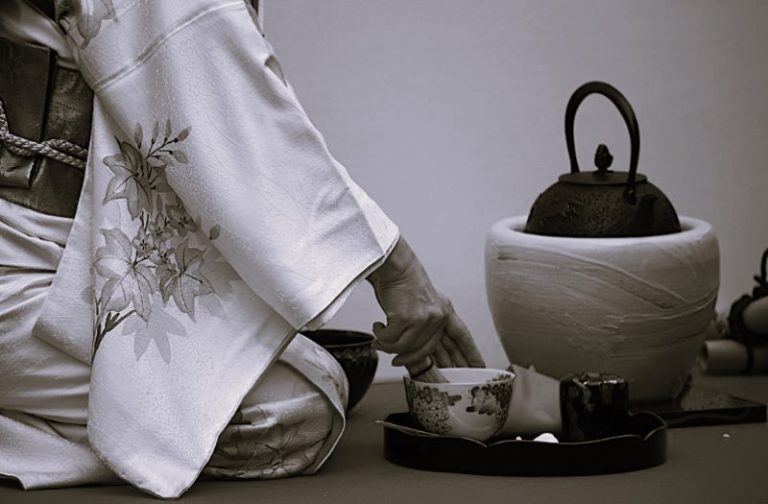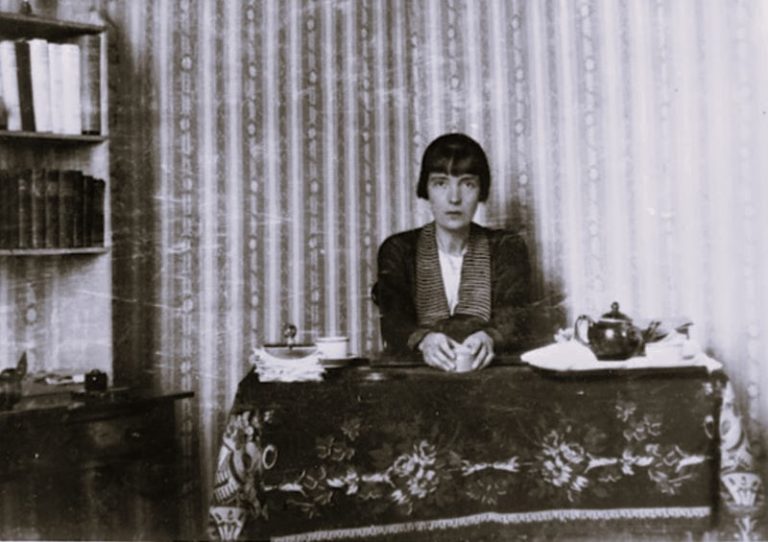

The societal value of a lineage in Ancient Greek society can be better understood by examining wealth inheritance.
Though historians have often argued that hereditary power and wealth played a critical role in defining an individual’s prospects in Ancient Greek society, there is ample evidence against this conclusion. The prevalence of old archaic noble families is disputed, and hereditary transfer of political power, where proven to exist, appears short-lived, limited, and insecure. Likewise, while hereditary wealth enabled elites to compete for power from one another, the division of inheritance made the promise of wealth acquired at birth unreliable. Therefore, the benefits of acquiring hereditary wealth and power in archaic and classical Greece appear far more limited than historians suggest due to the vulnerability of these assets, and consequently had a nominal impact on the stratification of Ancient Greek society.
At the outset, the hereditary power which is thought to have existed in early and late Archaic Greek society was relatively weak. Although the kingship described in the Odyssey involves an inherited succession of power, there was no “depersonalized, institutionalized royal officialdom” which guaranteed a secure transfer to the next generation. The Odyssey provides literary evidence for the flexibility of inherited power succession when Telemachus recognizes that “there are other kings of the Achaeans” eligible to replace him as king after his father’s death (Od., 400). Even for families which did retain power successively, Qviller explains, genealogies were rather short, suggesting that lines of kingship were relatively short-lived. Van Wees notes that even for tyrants from the seventh to fifth centuries who attempted to impose a rule with inheritable power, none lasted beyond the third generation. Like the kings, tyrants’ powers were limited, and even at the height of their supremacy they did not possess any powers to grant privileges or honors to their inner-circle. Therefore even in instances where inheritable political rule is well-attested, the short duration of existent lineages, combined with the limitations of this power, diminished its impact in the long narrative of Ancient Greek history.
Scholars often cite family names ending in –ides and –ades as proof of an ancestral Greek nobility. However, the quality and quantity of evidence supporting these claims is limited. Overall, Van Wees points out, only the Eupatridai in Athens and the Bacchiadai in Cornith are well-attested, and many others only occur in passing, without proof that they are legitimate hereditary lineages which held significant political power. Investigating Aegina in particular, Fisher notes that “there is no evidence that any of the leading families” claimed the same, specific descent, and moreover “there are no claims of a family history which began before c. 600.” Duplouy adds that the majority of these cited groups belong to other categories such as “patronymics, personal names, toponyms, sub-ethnics and names of professional associations,” which do not indicate successive political power and blood-relations. As such, lineages which appear legitimate and politically powerful cannot be traced back more than three generations. Given the Eupatridai and Bacchiadai lineages and not much else, the notion of extensive, pervasive hereditary power in late archaic Greece falters.
While the Eupatridai continue to be one of the best-attested examples of a Greek political hereditary-elite, patterns of familial control of power in Athens ceased following Solon’s reforms. Given that “under Solon, office-holding rights remained restricted to wealth,” it may appear that his reforms only solidified the political power of the land-holding elites. However, the removal of power from the Areopagus to appoint archons severely restricted hereditary control of power. In light of the Athênaiôn Politeia, Van Wees explains that the archons were thereafter “picked by lot from the 40 candidates pre-selected by the tribes.” The final “selection by lot,” prevented a proliferation of hereditary rule, since ruling families could no longer “co-opt their own.”Furthermore, Athenians never granted formal political privileges to these elites. Thus following 594 B.C., hereditary status never regained the short-lived preeminence which it may have held in Athenian society via the Eupatridai.
Perhaps, then, the societal value of a lineage in Ancient Greek society can be better understood by examining wealth inheritance. Within democratic Athens, inherited wealth had a significant influence on political power. The poor, although granted voting rights, did not have access to significant positions of power. The private financing of public buildings, performance of agnostic liturgies, and other related acts of extravagant generosity which characterized the competitive life of politics required a large amount of wealth. Wealthy men who had donated excessively to the state subsequently felt that they were entitled to charis, a type of interest in the form of public good will. To illustrate this concept, Davies cites the speech of Alkibiades, a man seeking the position of generalissimo in Sicily, which proclaims, “when a man at his own private cost benefits not himself but the city: nor is it unfair that he who prides himself on his position should refuse to be on an equality with the rest.” Davies aptly summarizes the dynamics of this system, stating that “incontestably, the formal political equality notwithstanding, the influence wielded on public affairs in classical Athens by the deployment of personal wealth,” which he argues fundamentally rested in property-power, “cannot at any time be dismissed as negligible.” Since property-power was inheritable, if unchallenged, it tended to perpetuate an “informal hereditary oligarchy.”
Although a certain amount of wealth appears to have been necessary for clout in a competitive political arena and holdings were indeed passed successively, inherited assets were an insecure form of capital in Archaic Greece. Hesiod provides literary evidence for the distress surrounding the division of inherited property and wealth in the Works and Days, lamenting, “for we had already divided our inheritance, but [Perseus] seized the greater share and carried it off” (W&D, 40). In the Odyssey, even a “bastard son” obtained a small gift and a dwelling after the legitimate brothers split their inheritance. If a noble’s power in early archaic Greece lay in the size and prosperity of his oikos, then it is evident that the loss of property and wealth through successive generations limited the sustainable power of noble families. Likewise, Davies explains that in democratic Athenian society, “the adverse effect of not having primogeniture is that the economic stability of these families must have been very considerable.” The notion of a heir was so critical that a childless marriage was grounds for divorce, and Plato envisioned the ending of “sterile” marriages after ten years without a heir (Laws, 784B). Hence the tricky nature of inheritance, in addition to the absence of primogeniture, made even the natural acquisition of a family’s assets an unstable process.
Given that power and wealth are so often in alignment, perhaps even inextricable, examining them separately to assess hereditary status has its pitfalls. However, exploring the patterns of Ancient Greek society in this manner provides a unique perspective on an otherwise difficult question. Considering ancient literary evidence and modern scholars’ attestations, there appears no overarching pattern of inherited political power secured for significant periods of time. However, the necessity for wealth when bartering for political power immediately excluded many from the process, perhaps keeping power within the hands of the wealthiest families due to their ancestral advantage. Regardless, the long-term stability of inherited wealth appears insecure as well since these holdings were continuously divided.While in Ancient Greece hereditary power may have been held through hereditary wealth, these assets appear vulnerable, thus neither inherited wealth nor power guaranteed prosperous futures for Greek lineages. As such, ancestral power and wealth had a limited overall impact on societal stratification within Ancient Greek society.
Further Reading
- Aristotle. Politics. Translated by H. Rackham. Cambridge, MA: Harvard University Press; London: William Heinemann Ltd, 1944.
- Davies, John K. Athenian Propertied Families, 600-300 B.C. Oxford: Clarendon Press, 1971.
- Davies, John K. Wealth and the Power of Wealth in Classical Athens. New York: Arno Press, 1981.
- Donlan, Walter. The Aristocratic Ideal in Ancient Greece: Attitudes of Superiority from Homer to the End of the Fifth Century B.C. Lawrence, Kansas: Coronado, 1980.
- Duplouy, Alain. “Genealogical and Dynastic Behaviour in Archaic and Classical Greece: Two Genticilian Strategies.” In ‘Aristocracy’ in Antiquity: Redefining Greek and Roman Elites, edited by Hans Van Wees et. al, Swansea: The Classical Press of Wales, 2015.
- Finley, M. I. The World of Odysseus. 2d ed. rev. London: Chatto & Windus, 1977.
- Fisher, Nick. “‘Aristocratic’ Values and Practices in Aegina: Athletes and Coaches in Pindar.” In ‘Aristocracy’ in Antiquity: Redefining Greek and Roman Elites, edited by Hans Van Wees et. al, Swansea: The Classical Press of Wales, 2015.
- Hesiod. Work and Days. Translated by Hugh G. Evelyn-White. Cambridge: Harvard University Press, 1914.
- Homer. The Odyssey. English Translation by A.T. Murray. Cambridge: Harvard University Press; London: William Heinemann, Ltd, 1919.
- Lyntott, Andrew. Violence Civil Strife and Revolution in the Classical City 750-330 BC. London: Croom Helm, 1982.
- Murray, Oswyn. Early Greece. 2nd ed. Fontana History of the Ancient World. London: Fontana, 1993.
- Ober, Josiah. Mass and Elite in Democratic Athens: Rhetoric, Ideology, and the Power of the People. Princeton, N.J.; Guildford: Princeton University Press, 1989.
- Pierrot, Antoine. “Who were the Eupatrids in Archaic Athens?” In ‘Aristocracy’ in Antiquity: Redefining Greek and Roman Elites, edited by Hans Van Wees et. al, Swansea: The Classical Press of Wales, 2015.
- Plato. Laws. Translated by R.G. Bury. Cambridge, MA: Harvard University Press, 1967.
- Qviller, Bjørn. “The Dynamics of the Homeric Society.” Symbolae Osloenses 56, (1981): 109- 155.
- Raaflaub, Kurt A, and Hans Van Wees. A Companion to Archaic Greece. Blackwell Companions to the Ancient World. Ancient History. Chichester, U.K.; Malden, MA: Wiley-Blackwell, 2009.
- Rose, Peter W. Class in Archaic Greece. Cambridge: Cambridge University Press, 2012.
- Tyrtaeus, Solon, Theognis, Mimnermus. Greek Elegiac Poetry: From the Seventh to the Fifth Centuries BC. Edited and translated by Douglas E. Gerber. Loeb Classical Library 258. Cambridge, MA: Harvard University Press, 1999.
- Van Wees, Hans. “Mass and Elite in Solon’s Athens: The Property Classes Revisited.” In Solon of Athens: New Historical and Philological Approaches, edited by Blok, Josine, and Andre Lardinois, Leiden: Brill, 2006.
- Whitley, James. “Agonistic Aristocrats? The Curious Case of Archaic Crete.” In ‘Aristocracy’ in Antiquity: Redefining Greek and Roman Elites, edited by Hans Van Wees et. al, Swansea: The Classical Press of Wales, 2015.
Originally published by Discentes: Penn’s Classical Studies Publication, 04.19.2019, via Scholarly Commons under the terms of a Creative Commons Attribution-NonCommercial-NoDerivatives 4.0 International license.






